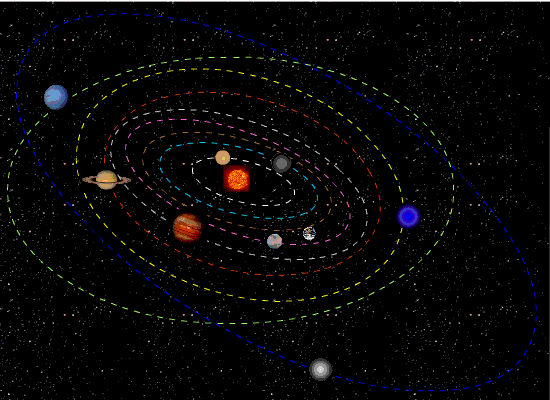rako
New member
Can the "Reformed" Approach (eg. Calvinism, Evangelicalism, Presbyterianism, but not Lutheranism, Catholicism, or Orthodoxy) lead away from Biblical Christianity?
The Reformed movement was a "revolution" in an approach to Christianity and to the Bible. It used a naturalistic, materialistic version of "Reason" as a major tool to understand the Bible and downgraded the authority of Christian Tradition for doing so. Three specific cases where Calvinism used to Reason to go against the combined plain meaning of the Bible and Tradition were:
This thread is not arguing that Calvinism openly teaches against the Nicene Creed or that Calvinists should not be considered "Christian". Nor am I arguing for Roman Catholicism or the RC "magisterial infallibility", as I am Eastern Orthodox. Rather, a review of the issues above raises the question of whether the trajectory of Calvin's approach ultimately leads away from the fundamentals of Biblical Christianity as we know it.
Rather than discuss all these issues at once, in order to better address and understand them in greater detail, I will write them out one at a time. For your part, you are invited to write in anytime with your own observations.
The issues that compose it are:
I. What was the broader social and philosophical background and context for Calvinism's appearance and its trajectory?
Question I is here: http://www.theologyonline.com/forums/showpost.php?p=4628593&postcount=4
II.(A) What was the Reformed attitude to Scripture and Tradition, and did its downgrading of Tradition in effect cut the anchor loose from its theology?
Question II(A) is here: http://theologyonline.com/showthrea...Christianity&p=4634991&viewfull=1#post4634991
II.(B) Instead of considering Tradition a crucial tool, did Calvin rely on modern Reason with a materialistic aspect?
III.(A) Did early Christian traditions teach that the Eucharist bread lacked Christ's body's presence? If not, did Calvin rely on materialistic reasoning to deny that presence?
III.(B) Could the Reformed view on the Eucharistic bread directly lead away from the Biblical Christian community and communion?
IV. Did Calvin use materialistic Reason to decide that the "spiritual rock" following the Israelites in 1 Corinthians 10 was not actually Christ or even a rock but a stream of water? Does this contradict Paul's view in the Bible?
V.(A) Did early Christian writings teach that holy peoples' bones, clothes, and shadow could not heal people? What is the Reformed basis for teaching that this is "superstition", other than materialistic Reason?
VI.(B) Could Reformed principles against relics' involvement in miracles lead away from the Bible's teachings on them?
VII. Could materialistic Reformed reasoning, illustrated by the three cases above, lead away from the fundamentals of Christianity as we understand it, such as Christ's supernatural Resurrection and Ascension?
VIII. Has this Reformed approach in fact led major scholars and Christian groups away from the fundamentals of Christianity?
I recommend discussing these one at a time. Currently I am on the last Question above that has a link below it.
The Reformed movement was a "revolution" in an approach to Christianity and to the Bible. It used a naturalistic, materialistic version of "Reason" as a major tool to understand the Bible and downgraded the authority of Christian Tradition for doing so. Three specific cases where Calvinism used to Reason to go against the combined plain meaning of the Bible and Tradition were:
- the Reformed view that Christ is not specifically present in the Eucharistic food,
- Calvin's view that the spiritual rock following the Israelites was itself neither a rock nor actually Christ, but a stream of water
- Reformed principles against holy objects being used for miracleworking
This thread is not arguing that Calvinism openly teaches against the Nicene Creed or that Calvinists should not be considered "Christian". Nor am I arguing for Roman Catholicism or the RC "magisterial infallibility", as I am Eastern Orthodox. Rather, a review of the issues above raises the question of whether the trajectory of Calvin's approach ultimately leads away from the fundamentals of Biblical Christianity as we know it.
Rather than discuss all these issues at once, in order to better address and understand them in greater detail, I will write them out one at a time. For your part, you are invited to write in anytime with your own observations.
The issues that compose it are:
I. What was the broader social and philosophical background and context for Calvinism's appearance and its trajectory?
Question I is here: http://www.theologyonline.com/forums/showpost.php?p=4628593&postcount=4
II.(A) What was the Reformed attitude to Scripture and Tradition, and did its downgrading of Tradition in effect cut the anchor loose from its theology?
Question II(A) is here: http://theologyonline.com/showthrea...Christianity&p=4634991&viewfull=1#post4634991
II.(B) Instead of considering Tradition a crucial tool, did Calvin rely on modern Reason with a materialistic aspect?
III.(A) Did early Christian traditions teach that the Eucharist bread lacked Christ's body's presence? If not, did Calvin rely on materialistic reasoning to deny that presence?
III.(B) Could the Reformed view on the Eucharistic bread directly lead away from the Biblical Christian community and communion?
IV. Did Calvin use materialistic Reason to decide that the "spiritual rock" following the Israelites in 1 Corinthians 10 was not actually Christ or even a rock but a stream of water? Does this contradict Paul's view in the Bible?
V.(A) Did early Christian writings teach that holy peoples' bones, clothes, and shadow could not heal people? What is the Reformed basis for teaching that this is "superstition", other than materialistic Reason?
VI.(B) Could Reformed principles against relics' involvement in miracles lead away from the Bible's teachings on them?
VII. Could materialistic Reformed reasoning, illustrated by the three cases above, lead away from the fundamentals of Christianity as we understand it, such as Christ's supernatural Resurrection and Ascension?
VIII. Has this Reformed approach in fact led major scholars and Christian groups away from the fundamentals of Christianity?
I recommend discussing these one at a time. Currently I am on the last Question above that has a link below it.
Last edited:




